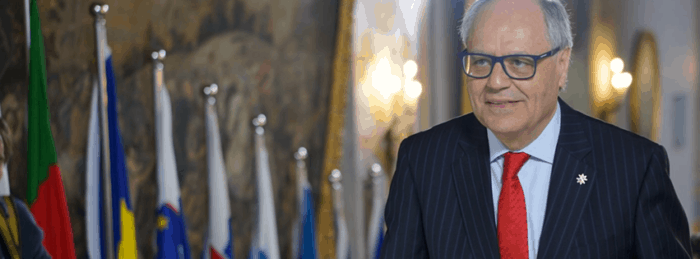
Edward Scicluna is being grossly disingenuous in his interview with Times of Malta today. He says the fact that there is an inquiry into his conduct and the conduct of all government ministers using public funds to fund propaganda on social media on their personal Facebook page is a “farce”.
He resorts first to the excuse Robert Abela used when the Standards Commissioner George Hyzler first pointed out the practice is not kosher. “The government is obliged to inform the public.” Yes, prime minister, but that does not mean what you think it means.
‘Informing the public’ is not about making propaganda videos in which you say what you like right up to the canned applause. Informing the public is about publishing data transparently, replying to press questions, however inconvenient, submitting oneself to regular interviews, responding to freedom of information requests before they are even placed. It’s the opposite of paying sponsored, stylised and packaged propaganda movies on Facebook. That’s the 21st century version of Goebbelsian “information”.
But Edward Scicluna adds his own touch on why the practice should not be “criminalised”. He said when he was MEP, Parliament gave him money to do exactly the same thing. The practice of providing public information on social media was positively encouraged, the farthest one can be from criminal.
That isn’t accurate. MEPs are not given funds for social media: it is the political groups that are given funds and they distribute those funds to their MEPs accordingly. There are strict rules for use and MEPs use their own funds and then apply for retroactive reimbursement.
All posts are audited to ensure that anything that is paid for is directly linked to a MEPs’ work for the Parliament and is easily identifiable as such. For example a Happy Christmas post will not be reimbursed, neither are any posts that are linked to the election of an MEP.
What Edward Scicluna also did not say was that the funds paid out to MEPs to inform the public are not dished out according to one’s opinion. All MEPs, no matter their political shade, are provided with the resources to inform constituents of their work.
But that’s not what happened in our case. Instead government ministers misappropriated funds intended for their work as government ministers in order to spend the money on personal propaganda. That is wrong because it is misappropriated (which is a big word for stealing, and therefore criminal). It is also wrong because unlike the funds paid out by the European Parliament for all its members’ communication, the money being spent is only here available to government ministers, not to all MPs.
This ensures that the government continues to monopolise information, choking out critical views and preventing the public from receiving the complete picture. The government’s spin on its own business is not “information”. It’s partisan propaganda. If it were accompanied by critical views, alternative propositions and challenges to gaps in information, then it would be another matter altogether.
Edward Scicluna is finance minister. He’s best placed to give Parliament proper funding for all MPs to do a proper job and to be able to inform the public about it. But he wouldn’t want that now, would he? He’d rather Parliament be a glorified chip shop while he keeps all the money for him and his colleagues to spend as they like, and no one can ask them questions.
This is happening on many fronts. The Standards Commissioner has already criticised the government for selecting journalists for invitations to press conference on the basis of how likely they are to ask difficult questions. But there’s more George Hyzler has not looked at yet.
Consider for example how the government is not bound by any rules on how to spend money in advertising to ensure it does not starve critical media and to use its budget as a carrot and stick to ensure favourable coverage. Other countries have these rules. We don’t because instead of challenging the government, the local press industry (not, as a rule, the journalists, mind you, but the media owners) often find it easier to beg the government than to confront it.
The ongoing inquiry into this misappropriation of funds is that rare thing we see in this country: the independent initiative of institutions. The challenge came from the Standards Commissioner through the Auditor General, through the Police who switched on a Magisterial inquiry.
May these people have the courage to see this one through. May ministers be finally thought to stop laughing at the “farcical” notion of independent institutions stopping them when they pocket public funds for their personal benefit.
It’s time someone stops these crooks.